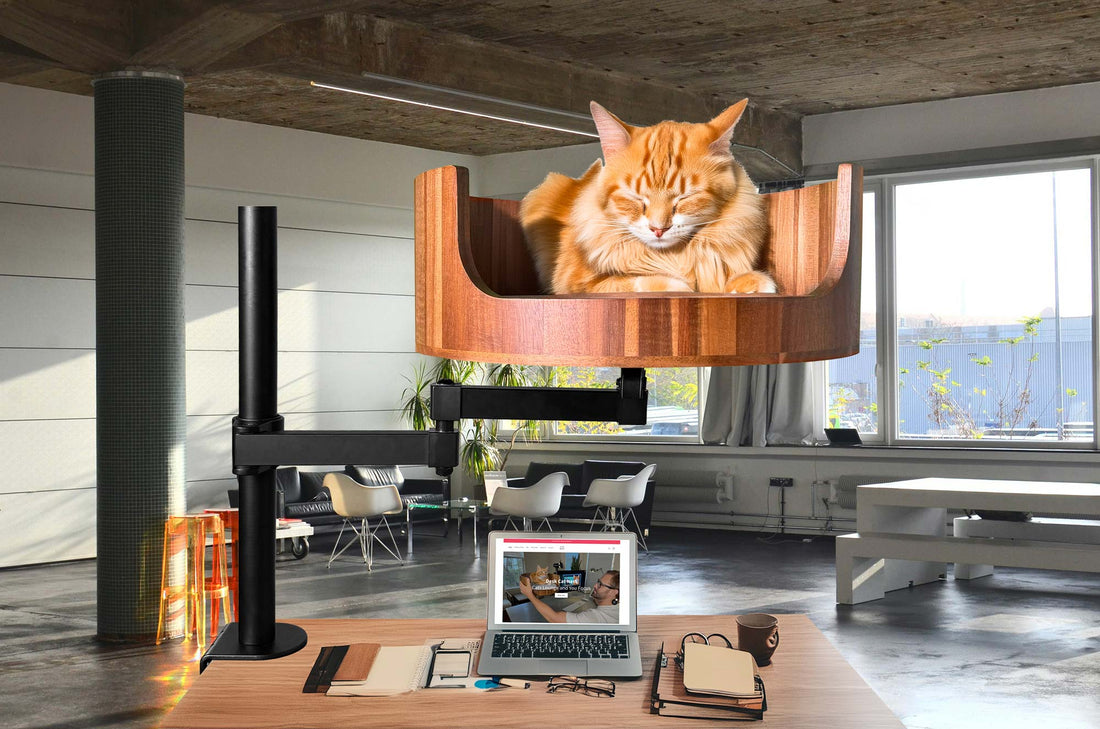
My Cats One Eye Is Watering and Squinting: What to Do
Share
If you've noticed that your cat's eye is watering and they are squinting, it's important to pay attention to these symptoms and take action. This behavior could be a sign of an underlying health issue that needs to be addressed promptly. In this article, we will discuss what could be causing your cat's watery eye and squinting, as well as what steps you can take to help your furry friend feel better.
From common eye infections to more serious conditions like corneal ulcers or glaucoma, there are a variety of reasons why your cat may be experiencing these symptoms. We will explore the potential causes of watery eyes and squinting in cats, as well as the signs to look out for that may indicate a need for immediate veterinary attention. Additionally, we will provide tips on how to care for your cat's eye at home and when it might be necessary to seek professional help. By being proactive and attentive to your cat's eye health, you can ensure that they receive the proper care they need to stay happy and healthy.
1. Keep an eye out for symptoms such as watery eyes and squinting in your cat, as they could be indicative of a more serious underlying issue.
2. Schedule a visit to the veterinarian to have your cat properly examined and diagnosed for any potential eye problems.
3. Various causes of watery eyes in cats include infections, allergies, foreign bodies, or even more severe conditions like glaucoma.
4. Treatment options may vary depending on the specific diagnosis, so it's crucial to follow the veterinarian's recommendations closely.
5. Regular eye care and monitoring can help prevent future issues and ensure your cat's overall health and well-being.
Causes of Squinting and Watering in Cats
There are several possible reasons why a cat's eye may be watering and squinting. One common cause is an eye infection, which can be caused by bacteria, viruses, or even allergies. Other potential causes include foreign objects in the eye, trauma or injury, glaucoma, or even a condition known as entropion, where the eyelid rolls inward, irritating the eye. It's important to consult a vet to determine the underlying cause of your cat's symptoms.
Home Remedies and Care Tips
While it's crucial to seek professional help for your cat's eye issues, there are some steps you can take at home to provide temporary relief. You can gently clean the affected eye with a sterile saline solution to remove any discharge or debris. Make sure to keep your cat's face clean and dry to prevent further irritation. Additionally, you can encourage your cat to rest in a quiet and stress-free environment to promote healing.
Medical Treatment Options
If your cat's eye symptoms persist or worsen, it's essential to bring them to the vet for a thorough examination. Depending on the underlying cause, your vet may recommend antibiotics, anti-inflammatory medications, or even surgery to address the issue. It's crucial to follow your vet's treatment plan diligently and attend follow-up appointments to ensure your cat's eye health is improving.
Frequently Asked Questions
Is Desk Cat Nest suitable for a cat with watering and squinting in one eye?
Desk Cat Nest can provide a comfortable and cozy space for your cat to rest, which may help alleviate some discomfort associated with watering and squinting in one eye. However, it is important to consult with a veterinarian for proper diagnosis and treatment of any eye issues your cat may have.
Will using Desk Cat Nest worsen my cat's eye condition?
Desk Cat Nest is designed to provide a safe and cozy resting space for your cat. As long as the bedding is kept clean and the environment is kept free from potential irritants, using Desk Cat Nest should not worsen your cat's eye condition. It is recommended to monitor your cat's eye health and consult with a veterinarian if you notice any changes.
Can Desk Cat Nest prevent my cat from squinting in one eye?
Desk Cat Nest alone may not prevent your cat from squinting in one eye, as squinting can be a symptom of various underlying issues. It is best to have your cat evaluated by a veterinarian to determine the cause of the squinting and for proper treatment. Providing a comfortable resting spot like Desk Cat Nest can contribute to your cat's overall well-being, but it is not a replacement for medical care.
How can I ensure that my cat is comfortable using Desk Cat Nest?
To ensure that your cat is comfortable using Desk Cat Nest, you can place familiar bedding or toys inside the nest to make it more inviting. Additionally, placing the nest in a quiet and safe area of your home can help your cat feel secure while resting. Allow your cat to explore the nest at their own pace and never force them to use it.
In conclusion, providing your cat with a comfortable and supportive resting space like the Desk Cat Bed can greatly improve their overall health and wellbeing. By ensuring that your cat has a designated cozy spot to relax in, you can help alleviate any potential eye discomfort or squinting that may be caused by stress or discomfort. The Desk Cat Bed's soft cushioning and ergonomic design will help your cat feel safe and secure, ultimately leading to better eye health and reduced watering and squinting. Investing in a high-quality cat bed like this is a valuable choice that can make a significant difference in your furry friend's happiness and comfort.



















































